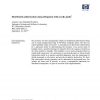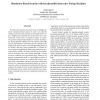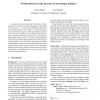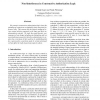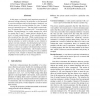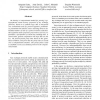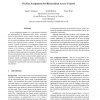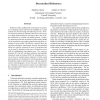CSFW
2006
IEEE
14 years 1 months ago
2006
IEEE
There is a growing interest in establishing rules to regulate the privacy of citizens in the treatment of sensitive personal data such as medical and financial records. Such rule...
CSFW
2006
IEEE
14 years 1 months ago
2006
IEEE
This paper presents an embedded security sublanguage for enforcing information-flow policies in the standard Haskell programming language. The sublanguage provides useful informa...
CSFW
2006
IEEE
14 years 1 months ago
2006
IEEE
CSFW
2006
IEEE
14 years 1 months ago
2006
IEEE
Recently, there has been much interest in extending models for simulation-based security in such a way that the runtime of protocols may depend on the length of their input. Findi...
CSFW
2006
IEEE
14 years 1 months ago
2006
IEEE
A common theoretical assumption in the study of information flow security in Java-like languages is that pointers are opaque – i.e., that the only properties that can be observ...
CSFW
2006
IEEE
14 years 1 months ago
2006
IEEE
We present a constructive authorization logic where the meanings of connectives are defined by their associated inference rules. This ensures that the logical reading of access c...
CSFW
2006
IEEE
14 years 1 months ago
2006
IEEE
In this paper we formally study important properties of electronic voting protocols. In particular we are interested in coercion-resistance and receipt-freeness. Intuitively, an e...
CSFW
2006
IEEE
14 years 1 months ago
2006
IEEE
We develop a compositional method for proving cryptographically sound security properties of key exchange protocols, based on a symbolic logic that is interpreted over conventiona...
CSFW
2006
IEEE
14 years 1 months ago
2006
IEEE
A key assignment scheme is a cryptographic technique for implementing an information flow policy, sometimes known as hierarchical access control. All the research to date on key ...
CSFW
2006
IEEE
14 years 1 months ago
2006
IEEE
Robustness links confidentiality and integrity properties of a computing system and has been identified as a useful property for characterizing and enforcing security. Previous ...

